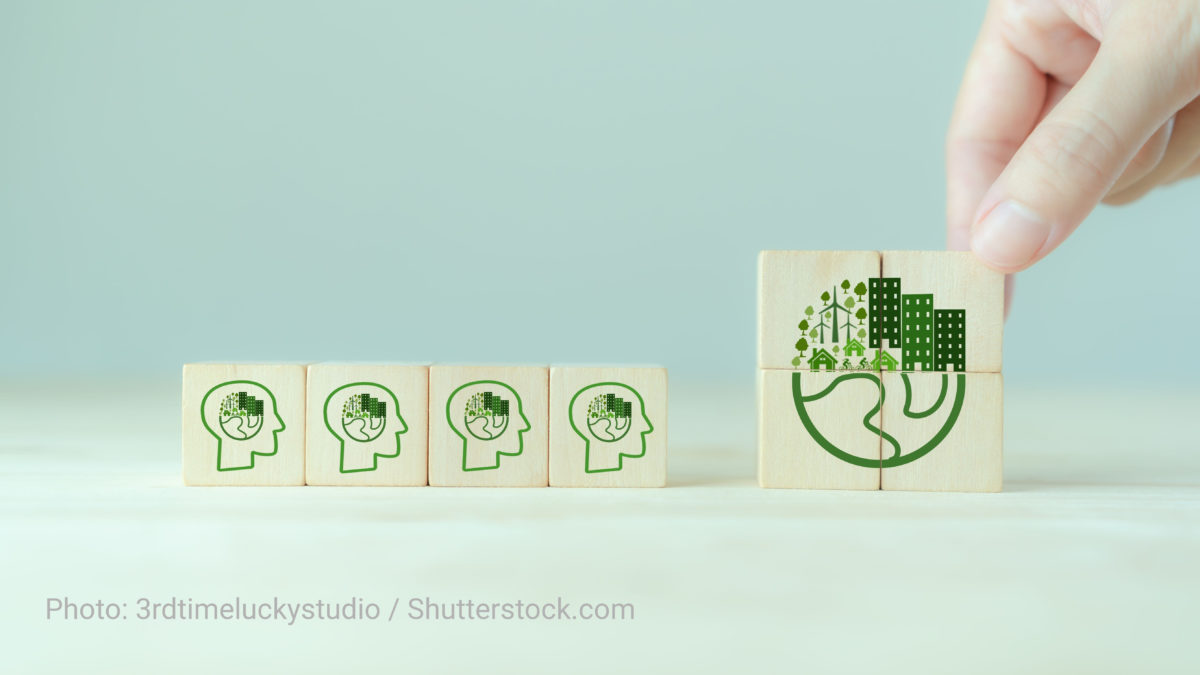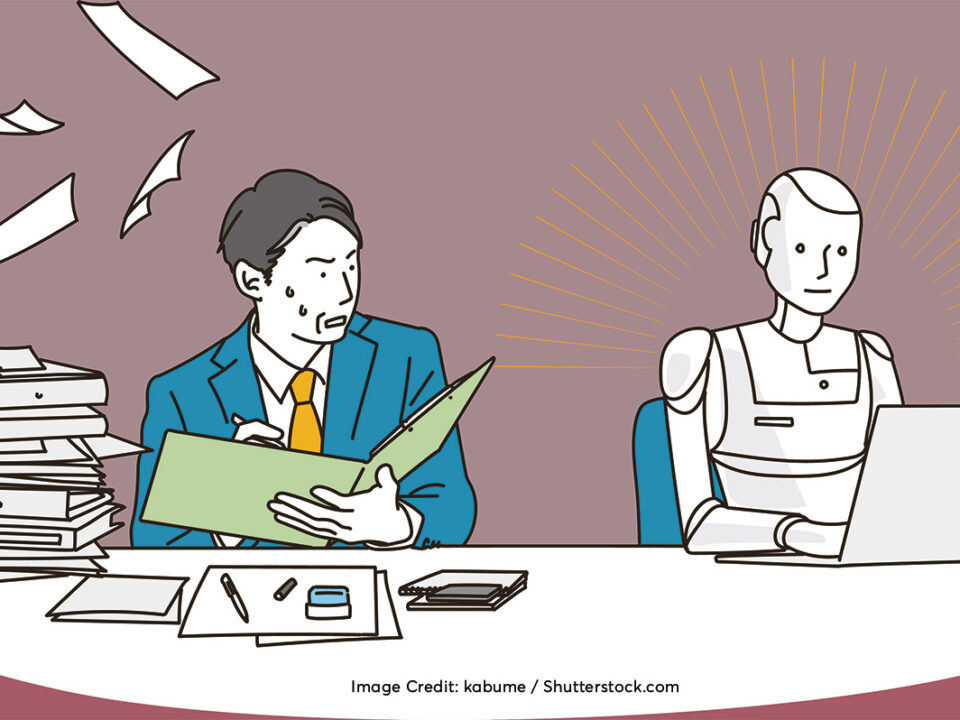The imperative need for the social economy and specialised personnel for Greece’s green/digital transition

The multicrisis era
We are living in a transitional era in which four overlapping crises (economic, climate, health and energy) are shaping a new reality in the economic and social structure of a rapidly changing world. Any planning for tomorrow is now done on the basis of other social and economic data. Realising the need for these changes is key to meeting the challenges of tomorrow.
Consequently, it is imperative that we recognise the need to organise the economy and society differently in order to become more resilient the face of coming crises – and we need to organise things differently on both the local and European levels. In Greece, specifically, at this juncture we must at long last implement a different productive model. Our goal has to be a sustainable productive model that transforms our economy into a climate-neutral economy by 2050. A social economy organised on cooperative lines that are the opposite of oligopolies and multinationals, and sufficient personnel to bear the burden of Greece’s green/digital transition are two crucial parameters for achieving this goal.
The imperative need for the social economy
The social economy is operating and evolving in virtually all economic sectors: health and welfare, culture, the environment, education and energy. Social economy entities operate in various legal forms in countries where they are active, and they can, under certain circumstances, contribute to job creation, supporting vulnerable social groups and, in general, maintaining social cohesion. And while the institutional, legal, economic and business frameworks of social enterprises in the EU vary among Member States, it is certain that, in spite of any differences, social entrepreneurship models boost growth on a local and regional level.
Social enterprises, as is well known, occupy a space between public (state) and purely private enterprise, and thus constitute what is known as the third pillar of the economy – the social economy and social entrepreneurship. Although it is difficult to provide a clear definition of a social cooperative enterprise, I will focus on a term that is used very frequently in the international literature, Sharing Economy, and on how important a role Data play in today’s economy. Many people say that we are now living in a stage of Data Capitalism. Thus, the Sharing Economy as a form of social economy, bolstered by innovative economic tools (Crowdfunding, Special Purpose Bonds, etc.) and decentralized DLT production, management and sharing technologies (3D printing, Blockchain, etc.), can produce and redistribute wealth and knowledge, giving a dividend to each worker and ordinary citizen from the use of these Data, which we must not cede to the large multinationals free of charge.
From energy communities with decentralized power generation and distribution systems to social enterprises for sharing cars, electricity and medical goods, there are good practices that show that things can work differently, with out-of-the-box ideas. There are many such successful examples of ecosystems in Trento, Italy; Mondragon, Spain; and the regions of Reggio Emilia and Cartagena.
The very important role of Local Government, as an agency that stimulates and coordinates local development in such examples, must be underlined. Local government knows more than anyone else not only the needs and problems that exist, but also the potential and opportunities that can be exploited by the social capital of each area.
The state’s actions also play a pivotal role in shaping a supportive ecosystem for the social economy. These actions must be multi-level as well as long term. In other words, policies must be formulated that concern the local, regional and national levels, and, at the same time, these actions must be part of an overall long-term plan for the development of social economy organisations. And of course, a key characteristic of these actions is that they must be co-shaped between the state, on the one hand, and the social economy organisations and local government on the other.
It is very encouraging to see that over 2.8 million social economy organizations are active in the EU, for which – in addition to volunteers – more than 13.6 million employees work. These figures bear witness to the dynamism and importance of the social economy sector in the European economy.
But what is the situation in Greece with regard to the social economy? There are those who will hasten to argue that this can’t work in our country. Such an attitude shows a refusal to grasp the new reality that can, in fact, find fertile ground. The roots of the social economy in Greece go back to before the Greek Revolution of 1821. The renowned cooperative in Ampelakia began in 1778. There are approximately 1,500 social enterprises active in Greece. In the Region of Central Macedonia alone, 183 active social enterprises are on the books.
But a legal framework for the social economy had to be formulated very slowly and gradually, undergoing numerous adjustments and amendments. It should be noted that this legal framework was promoted and supported, from time to time, mainly by the political party I come from and the progressive space in general. This is how we got Law 1667/1986 on Cooperatives, which may have its shortcomings and may not have been implemented as we initially envisaged, but which laid the foundations for the organisation of social cooperatives in Greece after the fall of the dictatorship. We then moved on to the institution of Limited Liability Social Cooperatives, with Article 12 of Law 2716/1999, which aimed at the social integration of people with mental problems, bringing us, in the midst of the economic crisis, to Law 4019/2011, which institutionalised Social Cooperative Enterprises. And it is interesting to look at why, at that time, Parliament was forced to activate – post-haste, I would say – the third pillar of the economy.
So, social cooperative enterprises are here to try to mobilise healthy sectors of our society, and consist of associations of natural persons on their own or natural persons together with legal persons. Especially now, in the midst of multiple crises, the social economy in Greece came to the fore more dynamically, but it hasn’t developed as expected, falling short of the progress made in other European countries.
The most recent law on Social and Solidarity Economy, Law 4430/2016, defines Social and Solidarity Economy as: “All economic activity based on an alternative way of organising the relationships of manufacturing, distribution, consumption and reinvestment, based on the principles of democracy, equality, solidarity, collaboration, and respect for people and the environment“. This law grouped together social economy organisations into social cooperative enterprises that were commercial in nature and aimed at maximum social benefits (such as social cooperative enterprises for inclusion and social cooperative enterprises for collective and social benefit), limited liability social cooperatives, workers’ cooperatives, and any other legal entity that is not a single-member company and has legal personality, such as agricultural and civil cooperatives and civil society companies under certain conditions.
At the same time, the state formulated a 2017-2023 action plan for the development of the ecosystem of the Social and Solidarity Economy, which now, as it draws to a close, needs to be evaluated as to its effectiveness and implementation. Today in Greece, where the social economy is growing only slowly and tentatively – compared to the sector’s growth in other EU member states – new measures are needed to support and promote it, as it can be a third path to growth and help respond to social problems.
Social economy enterprises, like all enterprises, need access to capital to achieve their goals and missions. To date, the Greek banking system – unlike banks on the European and international level – does not have specialised products and services for social economy enterprises. In Greece, the banks closest to social economy enterprises are the cooperative banks, of which there are unfortunately very few. So there is a need to create financial tools for social economy organisations, with credit and investment tools, easier access to public contracts, grants, tax breaks, access to market information, etc. All of this is necessary both to ensure they achieve their goals, which are for the common good, and to safeguard new jobs and their sustainability.
Specialised personnel to power the green/digital transition
Another crucial issue for the sustainability of all enterprises and the Greek economy as a whole is the creation of sufficient and capable technical and other personnel to carry through the green and digital transition, a key condition for a new sustainable productive model that our country needs. In other words, investment in the human capital needed to carry out the green/digital transition of enterprises and the economy.
Technical training of personnel in these specialities is the top priority for providing a sustainable foundation for a new productive process in the years to come. Greening and digitalisation of an enterprise will penetrate as two necessary dimensions in every aspect of day-to-day working life. No enterprise will be able to ignore ESG criteria or the role of artificial intelligence.
The needs for energy conservation, pursuit of a carbon-neutral footprint, and automation via robots and AI systems are transforming professional life and, at the same time, creating major challenges for workers. So we need to have an open and honest conversation on labour in general and respond to the new reality, beyond myths and hype. We need to address workers’ hopes and fears about the future of the labour market, with each of us shouldering our share of responsibility. As the social democratic party, we must shape more proactive and supportive policies on these issues. Businesses need to rethink how they organise themselves and operate. Economic chambers and local governments have to redefine their roles in development issues.
Unfortunately, we are seeing our country perform very poorly, in terms of European indicators, on digital training of workers and, more generally, in terms of cultivation of workers’ skills. We also see Greek companies investing very little in the training of their personnel. Equally disappointing and ineffective is the allocation of billions of EU euros for training ‘without controls and with no substantial result,’ as noted by the INE-GSEE studies. These longstanding failures must be redressed!
For PASOK-Movement for Change – the social democratic party in Greece – it is a major challenge to simultaneously develop a highly trained technical workforce for green/digital issues and to create new terms of protection, not of the given job, as used to be the case, but of the income of these workers. In short: highly trained and highly paid go hand in hand. Any other pairing, such as highly trained with low pay or poorly training with high pay, will lead us to new impasses.
It is time to launch this debate and decide on concrete measures and proposals, because the recovery fund is a make-or-break opportunity for our country, for businesses, for workers and for the sustainable development of our economy.
-
 George Arvanitidis
George Arvanitidis
Economist, Member of Parliament Thessaloniki B, Responsible MP for the Environment & Energy Sector for the PASOK – Movement for Change Party



